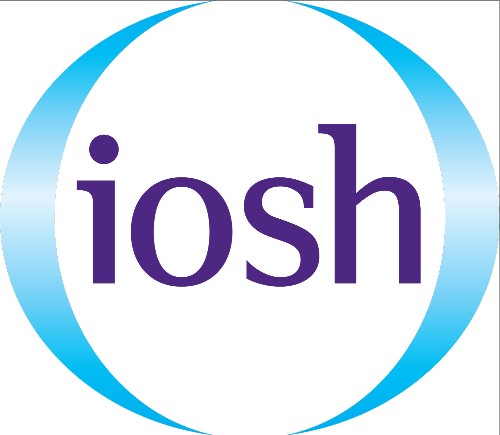Occupational Safety, Health and Environment, BSc Hons (Top-up)
Knowhow in occupational safety helps to prevent workplace accidents and illness. This top-up degree in occupational safety, health and environment lets you boost your skills by distance learning.
Our occupational safety, health and environment degree addresses the growing demand for qualified and professional safety and hygiene practitioners, particularly those with an understanding of environmental issues. It enables students with an appropriate degree or similar qualification to 'top-up' to a new degree in just two years.
Course materials and tutor support are available online via email and phone. This makes our course easily accessible for anyone with work or family commitments.
This course is accredited by the Institution of Occupational Safety and Health, which means that you will meet the academic requirements for the institution's chartered membership.
This programme may include a range of learning activities such as on-campus teaching, practical sessions, workshops, placements or field-based work. These activities form part of the core learning experience.
We welcome applications from disabled students and those with long-term health conditions. We encourage you to contact the Programme Team/admissions as early as possible so we can discuss your individual needs and explore reasonable adjustments. Please also visit our webpage to find out more about support available at the University.
UCAS points
N/A (full requirements below)
Course/institution codes
N/A
School
Location
Duration
- 2 years distance learning
Start month
September; January
Fees information
For fee information related to this course, please see fees section below
What you should know about this course
* Home fees
The government regulated undergraduate home tuition fee rate for 2026-27 has been confirmed as £9,790 per year.
What you will study
About the course team
It is delivered by distance learning on a part time basis with online course materials and support from tutors via email and phone. This enables applicants from a wide range of backgrounds to achieve graduate status and gain access to this growing field of employment. The teaching team is composed of Chartered Members of IOSH as well as Fellows of the HEA.
Come and meet us
We are offering virtual events so you can still experience how Greenwich could be the right university for you.
Next Open Days
Got a question?
To find out more about our Open Days and Campus Tours or if you need any assistance, please email opendays@gre.ac.uk.
Entry requirements
- An undergraduate (honours) degree in a relevant Science or Engineering subject OR
- a Diploma, Higher Diploma, HND, Advanced Diploma or Professional Diploma in Occupational Safety and Health (OSH) fields, with evidence of substantial knowledge, skills and experience.
- In addition, you will need: GCSE Mathematics at grade 4/C and GCSE English Language at grade 4/C. Equivalent qualifications may be considered.
- Please note: Applicants will be expected to provide evidence of working in an appropriate professional field.
For more information, use our contact form or call us on 020 8331 9000.
You can also read our admissions policy.
Available to overseas students?
Yes
Can I use Prior Learning?
Recognition of prior learning is not relevant to this course.
How you will learn
Learning experience
Learning takes place through a combination of timetabled learning and independent study.
You can view more information about how each module is taught within our 'What you will study' section.
Seminars and workshops enable you to discuss and develop your understanding of topics covered in lectures in smaller groups. You will also be able to meet your personal tutor. Timetabled learning may fall between 9am and 9pm depending on your courses and tutorials.
Independent learning
We encourage you to apply for membership of IOSH and to attend monthly meetings at the branch closest to where you live.
Assessment
You can view how each module is assessed within our 'What you will study' section.
Each course has formal assessments which count towards your grade. Some courses may also include 'practice' assignments, which help you monitor progress and do not count towards your final grade.
Feedback summary
We aim to give feedback on assignments within 15 working days via e-mail, telephone or Skype.
Dates and timetables
The academic year runs from September to June.
Full teaching timetables are not usually available until term has started. For any queries, please use our contact form.
Fees and funding
Tuition fees
| Cohort | Full time | Part time | Distance learning |
|---|---|---|---|
| Home* | N/A | TBC | £2,445 per 30 credits |
| International | N/A | N/A | £2,384 per 30 credits |
University is a great investment in your future. English-domiciled graduate annual salaries were £10,500 more than non-graduates in 2023 - and the UK Government projects that 88% of new jobs by 2035 will be at graduate level.
(Source: DfE Graduate labour market statistics: 2023/DfE Labour market and skills projections: 2020 to 2035).
* Home fees
The government regulated undergraduate home tuition fee rate for 2026-27 has been confirmed as £9,790 per year.
Other costs
Trips: Any compulsory field trips are funded by the school. Trips organised by the Architecture team are not compulsory, but you bear the costs if you choose to attend.
Resources: For Architecture, Landscape and Design courses, you will produce portfolios of large format plots plus CNC/3D printed models etc. Costs will vary but could reach £250 a year for printing, £100 for model making, and £50 for visiting the sites.
Software: We provide Adobe software and Lynda.com online video tutorials. You will also have access to Nvivo, SPSS Modeler and SPSS Amos. Any licenses for software outside of our range will come at your own cost.
Scholarships and bursaries
We offer a wide range of financial help including scholarships and bursaries.
The Greenwich Bursary
This bursary is worth £700 for new undergraduate students with a low household income, entering Year 0 or 1 who meet the eligibility criteria.
EU Bursary
Following the UK's departure from the European Union, we are supporting new EU students by offering a substantial fee-reduction for studying.
Financial support
We want your time at university to be enjoyable, rewarding, and free of unnecessary stress, so planning your finances before you come to university can help to reduce financial concerns. We can offer advice on living costs and budgeting, as well as on awards, allowances and loans.
Careers and placements
Will I have a work placement?
This course does not require a placement. It is part-time and is designed to enable professionals already working in a relevant role to achieve graduate status.
What sort of careers do graduates pursue?
Graduates will be equipped for careers as advisers, managers and officers in health, safety and environment within the private and public sectors, both nationally and internationally.
Do you provide employability services?
Employability activities encourage you to take part in as many opportunities as possible. The central Employability and Careers Service provides support for students preparing to apply for placements and graduate roles, such as CV clinics, mock interviews and employability skills workshops.
Each School also has its own Employability Officer who provides specific opportunities relevant to your own course. They work closely with professionals in industry to ensure you are well-prepared for the workplace and have already begun to build your professional network by the time you graduate.
Accommodation
Greenwich
Living in halls of residence is a great way to make new friends and get into the social side of university life. With four great locations, all minutes away from the campus and the centre of historic Greenwich , you will be at the heart of one of the most beautiful university settings in the UK.
Rooms start at £146.30/wk and include Wi-Fi, utility bills, access to our on-campus gym and 24-hour security - and just a 10-minute train journey to central London. Students based at our Greenwich campus can also choose to live the Student Village at Avery Hill, which is only a short ride on our free shuttle bus.
Support and advice
Academic skills and study support
We want you to make the most of your time with us. You can access study skills support through your tutor, our subject librarians, and our online academic skills centre.
Where appropriate, we provide support in academic English and mathematics. If you need to use particular IT packages for a specific module, we provide training for this.
Not quite what you were looking for?
We've got plenty of other courses for you to choose from. Browse our undergraduate courses or check our related courses below.....
Construction at the University of Greenwich
Our range of courses, some of which are professionally accredited, will give you the skills and knowledge you need to start, or develop, your career.
Visit our construction degrees page.
Studying engineering at the University of Greenwich
Gain a solid foundation in all aspects of engineering in specialist labs on our Medway Campus and choose the area you want to specialise in later in your studies.
Visit our engineering degrees page.
Engineering subjects
Chemical engineering degrees
Study in specialist laboratory facilities at our Medway Campus where you’ll gain the skills and knowledge you need to become a professional chemical engineer, using the latest equipment and simulation software.
Civil engineering degrees
Discover pioneering approaches in specialist laboratory facilities on our Medway Campus, where you will use the latest surveying equipment and learn how to apply them in real-world scenarios.
Computer engineering degrees
These pioneering degrees combine technical engineering with an impressive depth of computer theory. You'll gain the specialist knowledge and skills needed to work in this cutting-edge industry.
Construction degrees
Our range of courses, some of which are professionally accredited, will give you the skills and knowledge you need to start, or develop, your career.
Electrical and electronic engineering degrees
Learn how to make the world a better, more connected place. You will study in specialist lab facilities on our Medway Campus and benefit from our close ties with engineering companies such as BAE Systems and Ford.
Engineering management degrees
Combine solid technical skills in engineering with business enterprise management skills. Studying on our Medway Campus, you will benefit from specialist and integrated lab facilities.
Engineering technology degrees
Learn how to apply engineering to a range of real-world problems. Studying on our Medway Campus, you will develop the skills and knowledge you need to drive changes in product design using the latest technological advances.
Mechanical engineering degrees
This is one of the broadest areas of engineering. You will learn about the design, construction and operation of mechanical systems. Studying at our Medway Campus, you’ll benefit from our strong links with local industry.
Mode of study
Select from the dropdown below.
| Course level | |
| UCAS code | |
| Duration | |
| Location |









